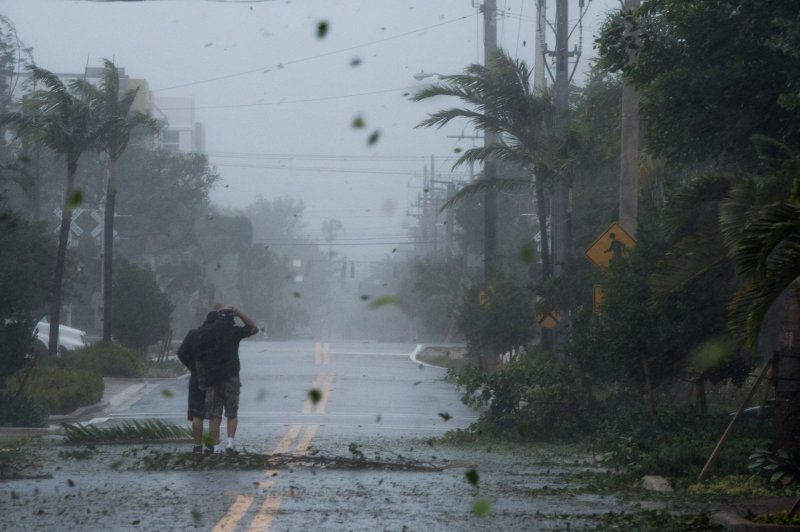Hurricanes Harvey and Irma expected to create an interesting few weeks for energy market observers, a report from Goldman Sachs found. Photo by Ken Cedeno/UPI |
License Photo
Sept. 11 (UPI) -- Post-hurricane recovery in the southern United States will be a positive factor for crude oil demand, offsetting short-term declines, Goldman Sachs said.
Irma was downgraded to a tropical storm as it worked its way up the western coast of Florida early Monday. In an incident update from Sunday afternoon, when Irma was still a hurricane, the U.S. Energy Department said at least 10 ports that would receive oil shipments were closed because of the storm. Florida has no refinery capacity of its own and several areas were without gasoline, though the Energy Department said regional inventories are above the five-year average.
As of 2 p.m. EDT, Sunday, five refineries in the Gulf Coast region were still closed because of Harvey, which made landfall in Texas in late August. That represents a loss of about 5.8 percent of the total U.S. refining capacity.
Both storms wreaked havoc on the U.S. energy sector and overall markets, prompting wide swings in supply and demand. In an emailed research note, Goldman Sachs said Irma would result in lower demand, but not lower production. Harvey's impact on demand, meanwhile, would be considerably longer because of the concentration of production and refinery centers in the southern Gulf Coast region.
Based on historic models, Goldman said it expected demand to rise when weighed against a season with no hurricane activity.
"Over the next several months, we believe that the post-storm recovery will likely bring oil demand to a higher level, helping to gradually offset this negative initial impact," the note read. "The lack of an outlet for U.S. crude production should post-Harvey refinery outages remain elevated could in addition over time create risk of onshore production disruptions."
The risk of higher demand and lower production would in part counter normal seasonal trends. Consumer demand tends to drop off after the longer Labor Day holiday in early September in the United States. Oil prices as a result usually decline in the waning months of the year.
Oil prices were moving in mixed territory early Monday, with Brent crude oil trading at a $5.80 premium over West Texas Intermediate, the U.S. benchmark for the price of oil. The divergence would be explained by demand strains in the United States.















